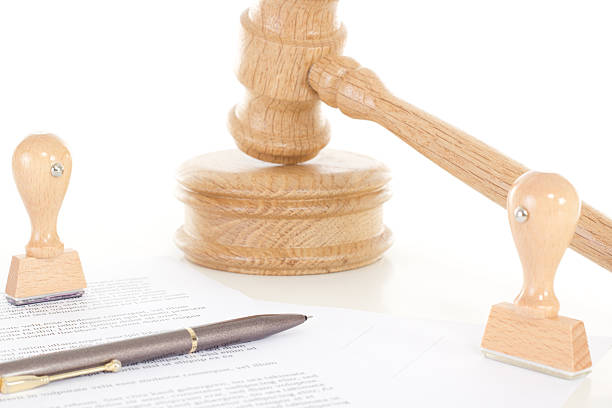If courts make parenting orders, any party who must follow the order may commit a contravention without reasonable excuse. Contravention is a complex and technical area of law with specific rules and fact-dependent application. When a court issues orders, whether through consent or after a court proceeding, the orders are legally binding and must be followed. A person violates an order without reasonable excuse if they did one of the following:
- Failure to comply with the order on purpose
- No reasonable attempt was made to comply with the order
- Intentionally prevented a person who is bound by the order from complying with it.
- A person who is bound by the order aided or supported a violation of the order
How can parties to family law proceedings believe that there are family law contraventions that occurred? It is up to those parties to file a contravention application at the Federal Circuit and Family Court of Australia. Read on to know more about contravention without reasonable excuse in accordance with the Family Law Act 1975.
Section 70NEA: Application of Subdivision
This Section only applies if:
- Court has made a primary order whether after or before the commencement of this division.
- A court with jurisdiction under this Act knows that a person has committed a violation (the current violation) of the primary order.
- The person does not prove that he/she had a reasonable excuse for the current contravention
- A court/no court has previously issued an order imposing a sanction or taking action in response to a person’s violation of the primary order.
- A court/no court has previously adjourned proceedings in relation to a person’s violation of the primary order
- The court understands that it is more appropriate to use Section 70NEA to deal with a person’s violation
Section 70NEA does not apply if the court dealing with the contravening person has acted in a way that demonstrates a serious disregard for his/her obligations under the primary order.

Section 70NEB: Powers of Court in Relation to Contravention Without Reasonable Excuse
According to Section 70NEB, the court may do the following when necessary:
- Make an order directing the person who committed the current contravention without reasonable excuse or with a reasonable excuse or another person to attend a post-separation program. This is also ‘a subsection 1a order.’
- Vary or make or a new parenting order compensating a person for time not spent with the child or time the child did not live with the person. This is true if a person committed contravention without reasonable excuse on a parenting order. This is also a ‘subsection 1b order.‘
- Adjourn proceedings in order to allow either or both parties to the primary order to reapply for a further parenting order. This may discharge, vary, or suspend the primary order or revive some or all contents of a past parenting order. This is also a ‘subsection 1c order.‘
- Order the contravening person to enter into a bond
- Order the person who committed contravention without reasonable excuse to enter into a bond and receive a fine not exceeding 10 penalty units.
- Make an order requiring the contravening person to partially or completely compensate a person who wasn’t able to spend time with a child due to the contravention.
- Make an order requiring the contravening person to pay some or all of the costs of the other party. This is also a ‘subsection 1g order.’
- Order the person who initiated proceedings to partially or fully pay the costs of the contravening person. This is if the court makes no other orders in relation to the current contravention.
Section 70NEB: Subsections 1a, 1b, 1c, and 1g Orders
According to Section 70NEB, Paragraph 1a-7, courts must:
- Seek advice from a family consultant about the appropriate services for a person’s needs before making an order under subsection 1a.
- Not make a subsection 1a order directed to a person other than the contravening person unless the alleged person in relation to the current contravention is a party to the proceedings.
- Not make a subsection 1a order under paragraph if the court is dissatisfied to direct the order to the alleged person. However, what is the reason for this? The alleged person must have a connection between the current contravention and the person carrying out his or her parental responsibilities in relation to the child/children in the primary order.
- Ensure that a provider of a program is notified about the making of a subsection 1a order for a person who committed contravention without reasonable excuse.
- Consider issuing a subsection 1b order to compensate the person for the time he/she did not spend with the child as a result of the violation. This includes the time the child did not live with the person.
- Not make a subsection 1b order if it is not in the best interests of the child.
- Have regard to, firstly, whether the order was made through consent (consent orders) when making a subsection 1c order. Secondly, whether either or both parties have legal representation. Thirdly, the length and period between the making of the primary order and the current contravention. Lastly, any other matter that the court thinks is relevant.
Lastly, courts must make a subsection 1g order if:
- An applicant who brought the current contravention proceedings previously brought proceedings in relation to any primary order. These primary orders involve the respondent who committed the current contravention, and who may have violated any previous primary order.
- They do not think that the respondent had committed contravention without reasonable excuse of any primary orders.
- They believe that the respondent had committed a contravention of the primary order, but did not make an order under sections 70NDB, 70NDC, 70NEB, 70NFB, or 70NBA.

Contravention Without Reasonable Excuse: Seeking Legal Advice
Contravention of a parenting order is one of the most serious family law cases in Australia. Just like any other offence, a parenting order contravention will require a resolution from parties involved.
JB Solicitor is a family law firm that aids in different parenting matters and provides resolutions for them. We have mediation and arbitration services if parties want efficient out-of-court resolutions.
Message us today for more information about contravention without reasonable excuse.
